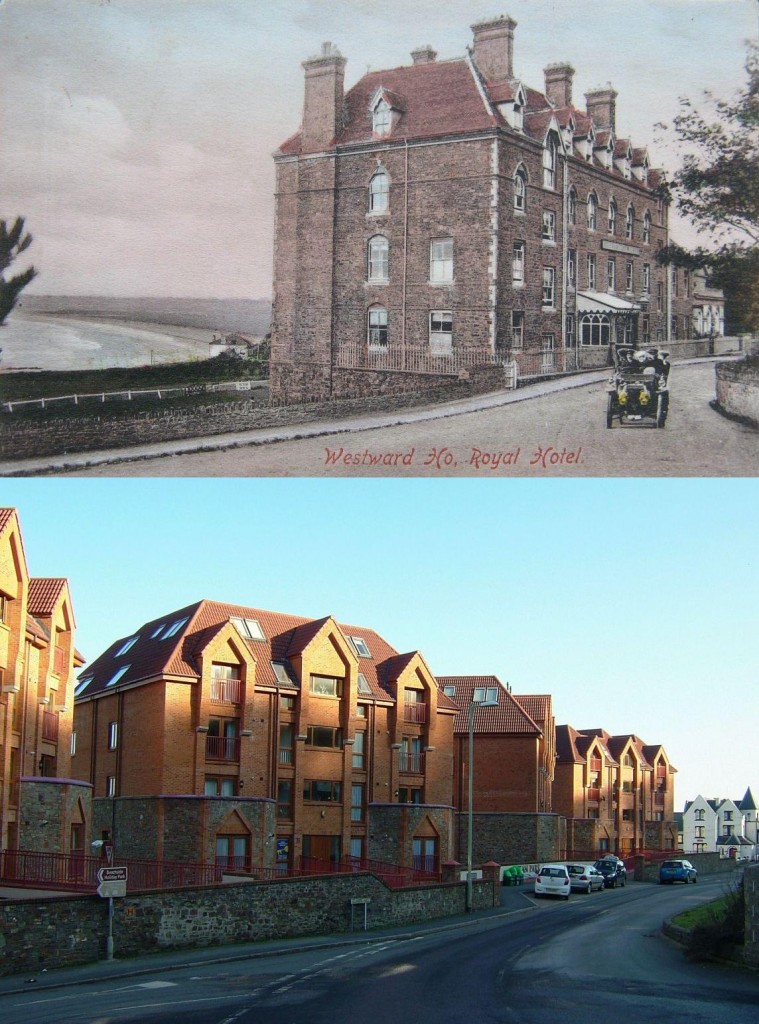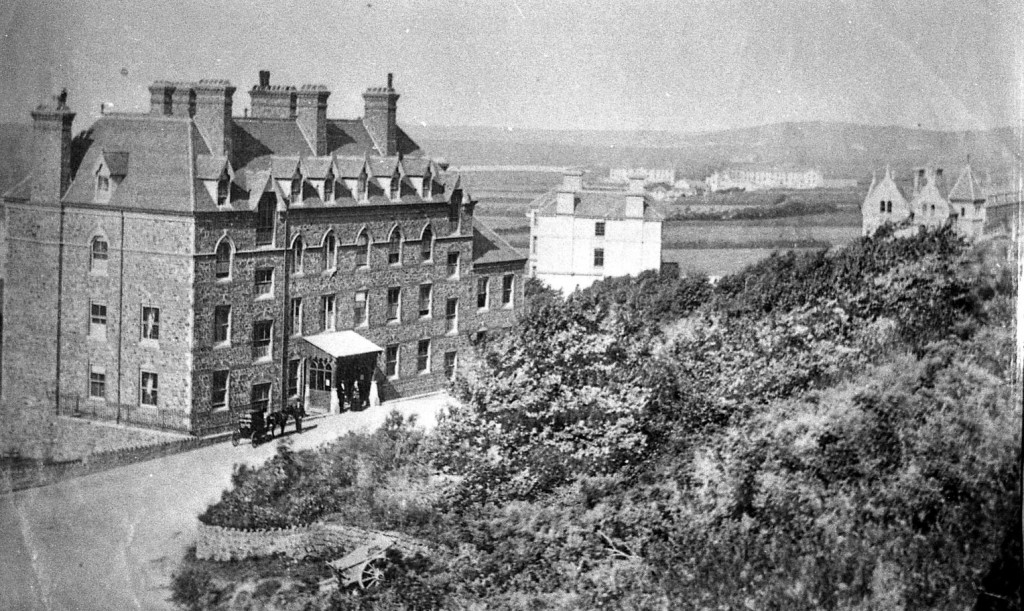In February 1864, Captain George Mill Frederick Molesworth’s company began building the hotel which was originally to be called ‘The Royal Hotel.’ As well as building hotels, houses and villas, George Molesworth set up two colleges – the United Services College in 1874 and Kingsley Memorial College in 1882. The owners of the hotel asked Charles Kingsley to perform the opening ceremony but at first he declined, believing that the development of the area would ruin its rugged beauty. A quick change of name was undertaken and the hotel became ‘The Westward Ho! Hotel’. Kingsley attended, took his cheque and it is said he never came near the place again.
Later the hotel reverted to ‘The Royal Hotel’, following the patronage of the Prince of Wales (later King Edward VII). It was described as Victorian Domestic Gothic Style and contained 33 luxury bedrooms and 75 acres of land. By 1866 a matching villa has been built to the east of the hotel catering for the servants staying in the main hotel along with other minor customers. This building survives and is named Golden Bay Court.
Access to the village was via the steep Stanwell Hill and at the bottom near the hotel were stables and a public bar for the coachmen and ostlers. The stables were converted to dwellings in the 1990s and named ‘The Rocks’. In 1900 an extension was added to the hotel called the ‘Golden Bay Tea Rooms’, which became the well-known and loved ‘Anchor Inn’ many years later. In 1963 the hotel, now named ‘Golden Bay Hotel’ closed down. It was converted to 14 flats and the land was sold off. In 1976 the tennis courts opposite the hotel entrance were sold off and the 12 houses built there, which stand today. Demolition of the old hotel along with The Anchor pub took place in 2000 and ‘Ocean Park’ apartments were built on the site. Next time you pass, take a look at the lower section, which is built from reclaimed stone taken from the original Westward Ho! Hotel.
More information at www.westwardhohistory.co.uk
and “Westward Ho! History Group” on Facebook.
 _____________________________________________________________
_____________________________________________________________

